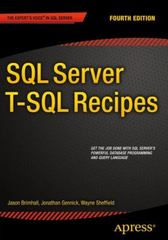Question
#ifndef LIST_H #define LIST_H #include #include #include template class List { //OVERVIEW: a doubly-linked, double-ended list with Iterator interface public: //EFFECTS: returns true if the
#ifndef LIST_H
#define LIST_H
#include
#include
#include
template
class List {
//OVERVIEW: a doubly-linked, double-ended list with Iterator interface
public:
//EFFECTS: returns true if the list is empty
bool empty() const{
return (first == 0);
}
//EFFECTS: returns the number of elements in this List
int size() const;
//REQUIRES: list is not empty
//EFFECTS: Returns the first element in the list by reference
T & front(){
assert(!empty());
return first->datum;
}
//REQUIRES: list is not empty
//EFFECTS: Returns the last element in the list by reference
T & back(){
assert(!empty());
return last->datum;
}
//EFFECTS: inserts datum into the front of the list
void push_front(const T &datum){
Node *p = new Node;
p->datum = datum;
p->next = first;
first = p;
}
//EFFECTS: inserts datum into the back of the list
void push_back(const T &datum){
Node *p = new Node;
p->datum = datum;
p->next = nullptr;
if (empty())
first = last = p;
else{
last = last->next = p;
}
}
//REQUIRES: list is not empty
//MODIFIES: may invalidate list iterators
//EFFECTS: removes the item at the front of the list
void pop_front();
//REQUIRES: list is not empty
//MODIFIES: may invalidate list iterators
//EFFECTS: removes the item at the back of the list
void pop_back();
//constructor
List() : first(0), last(0){}
//copy constructor
List(const List &other):first(0),last(0){
copy_all(other);
}
//destructor
~List(){pop_all();}
//overloading constuctor
List &operator = (const List
if (this == &rhs) return *this;
pop_all();
copy_all(rhs);
return *this;
}
private:
//a private type
struct Node {
Node *next;
Node *prev;
T datum;
};
//REQUIRES: list is empty
//EFFECTS: copies all nodes from other to this
void copy_all(const List
//MODIFIES: may invalidate list iterators
//EFFECTS: removes all nodes
void pop_all();
Node *first; // points to first Node in list, or nullptr if list is empty
Node *last; // points to last Node in list, or nullptr if list is empty
public:
class Iterator {
//OVERVIEW: Iterator interface to List
public:
// This operator will be used to test your code. Do not modify it.
// Requires that the current element is dereferenceable.
Iterator& operator--() {
assert(node_ptr);
node_ptr = node_ptr->prev;
return *this;
}
private:
Node *node_ptr; //current Iterator position is a List node
// add any additional necessary member variables here
// add any friend declarations here
friend class List
// construct an Iterator at a specific position
Iterator(Node *p){
node_ptr = p;
}
};//List::Iterator
// return an Iterator pointing to the first element
Iterator begin() const {
return Iterator(first);
}
// return an Iterator pointing to "past the end"
Iterator end() const{
return Iterator(last->next);
}
//REQUIRES: i is a valid, dereferenceable iterator associated with this list
//MODIFIES: may invalidate other list iterators
//EFFECTS: Removes a single element from the list container
void erase(Iterator i);
//REQUIRES: i is a valid iterator associated with this list
//EFFECTS: inserts datum before the element at the specified position.
void insert(Iterator i, const T &datum);
};
#endif
Step by Step Solution
There are 3 Steps involved in it
Step: 1

Get Instant Access to Expert-Tailored Solutions
See step-by-step solutions with expert insights and AI powered tools for academic success
Step: 2

Step: 3

Ace Your Homework with AI
Get the answers you need in no time with our AI-driven, step-by-step assistance
Get Started


